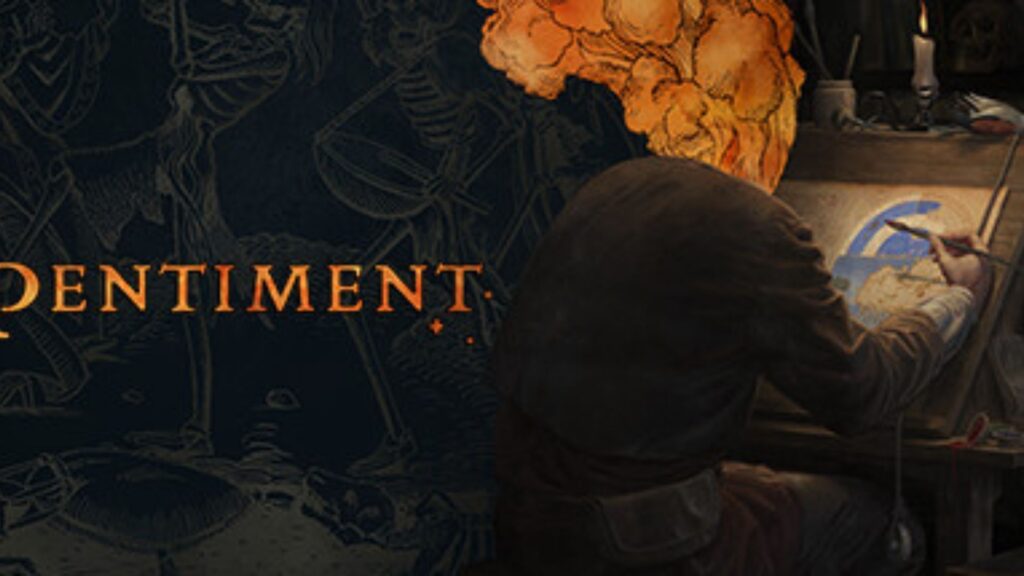
Image Source: Obsidian Games
Unpapering The Past: Jewish History and the Cast of Pentiment
Pentiment’s Brother Guy is one of my favorite video game characters of all time.
Yes, the same Brother Guy who verbally harasses protagonist Andreas throughout the game, even when you’re actively trying to save him from being killed via peasant rebellion. The same Brother Guy who you can decide sucks so much that he deserves to be convicted for murder. If you’ve played Pentiment yourself, you might be cracking your knuckles and getting ready to argue in the comments about how much you hate Guy, and why he deserves to be executed, and so on and so forth. But hear me out.
To start this story, we have to go back in time to when my great-aunt who I am partially named for got on a boat to escape the rising tides of antisemitism in Europe – wait, too far. Let’s start here: Pentiment is a narrative-driven game from Obsidian Entertainment, set in a town called Tassing, in early 16th century Bavaria. You play as Andreas Maler, a journeyman artist who begins Act I working in the local abbey’s scriptorium, illustrating a Book of Hours (medieval prayer book). A baron visiting town is murdered and Andreas must find the culprit so that the blame does not fall on his friend and mentor, the elderly Brother Piero. Act II takes place after a significant time skip, featuring Andreas returning to Tassing as a more seasoned master artist and getting caught up in another murder that he must solve. There’s also an Act III, but I won’t go into it here – it’s not as relevant.
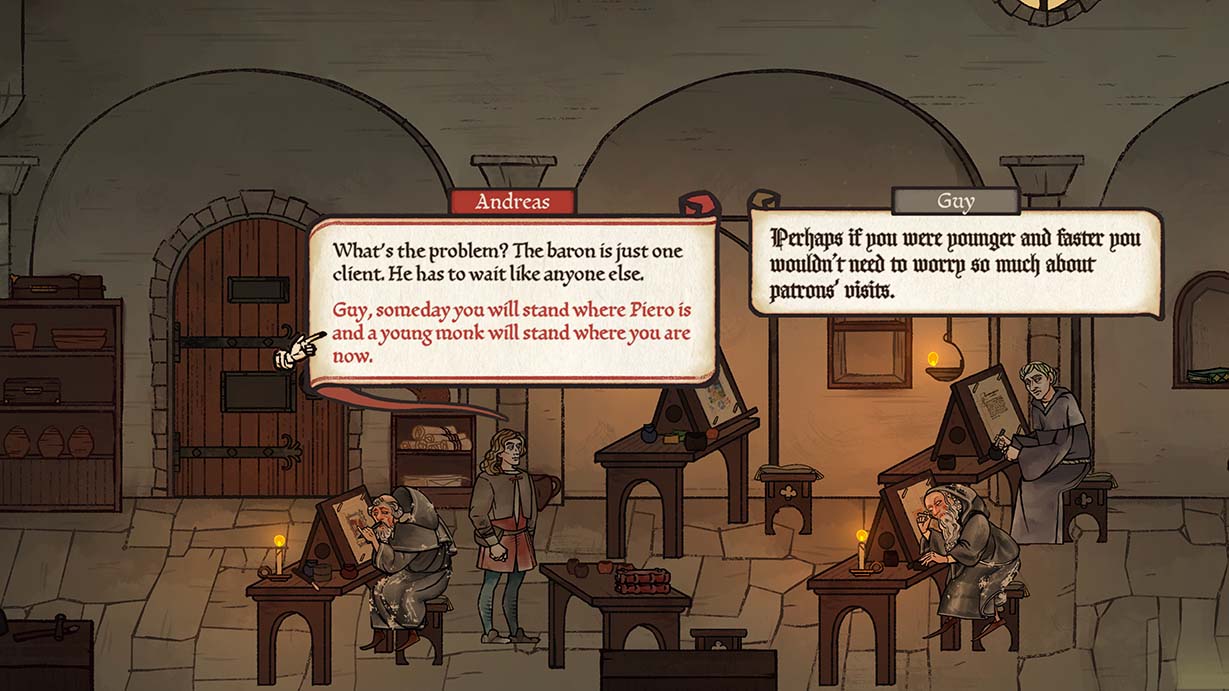
One of Pentiment’s tricks is that there is no right solution to the mysteries it presents. In each case, Andreas is faced with several suspects who all have strong motives, means, and opportunity, and you never find out who the “correct” murderer was. You’re forced to take into account not only the evidence that you’ve managed to uncover in the limited time afforded to your investigation, but also which suspect you personally wouldn’t mind being executed and removed from the rest of Pentiment’s story. So, say, if you think that one of the suspects actually did the murder, but for a good reason, you could easily pin the blame on someone else as a cover-up.
Brother Guy is one of the suspects in the second murder Andreas investigates. The victim of Act II is Otto, an outspoken member of the townsfolk trying to incite action against the abbot who exerts political control over Tassing. As you progress through Andreas’s investigation, it becomes clear that Guy was actively embezzling from the abbey, and may have killed Otto to protect his secret. Guy is extremely unhelpful to you throughout all of this, refusing to speak on his actions unless you gather enough evidence and pass the correct skill checks to confront him directly about his crimes. He also throws a fit if you talk about your suspicions to the abbot before speaking to him, locking you out of his confession scene if you do.
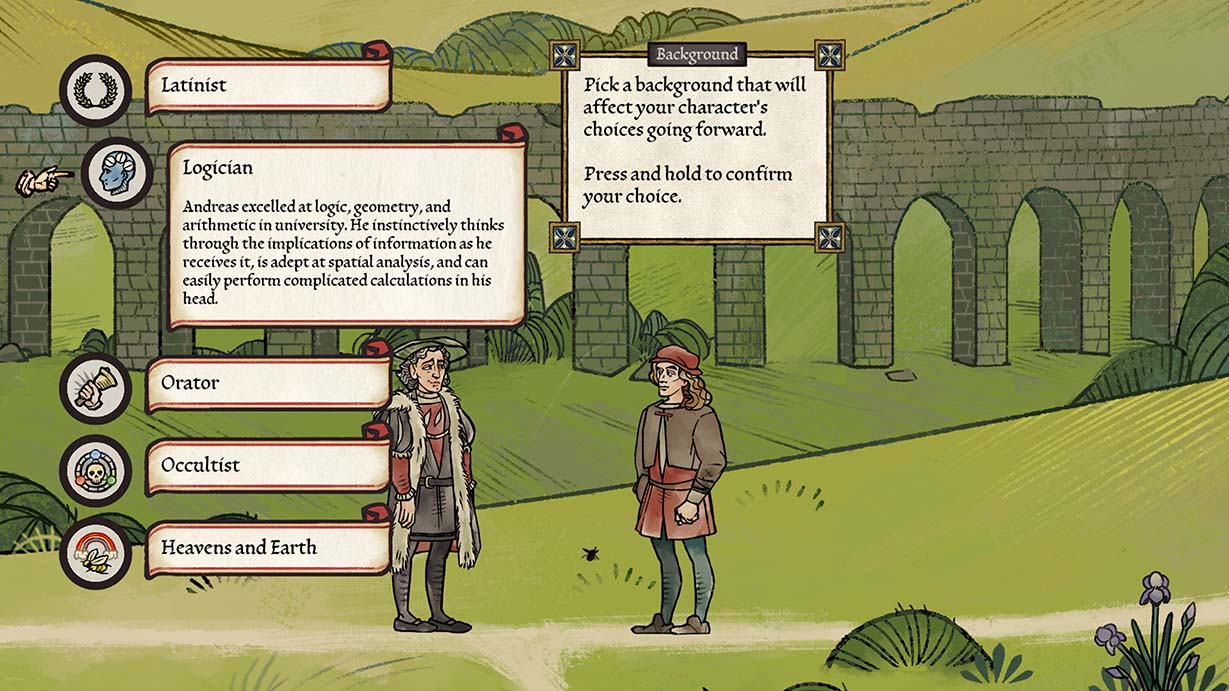
Remember how I said that “no right solution” is one of Pentiment’s tricks? The other trick is that every character in the game has an astonishing depth of not only personality, but of care put into their depiction. I headed into Pentiment expecting it to be centered primarily around the brothers and sisters of the abbey, but instead found a town full of people with diverse religious beliefs and opinions, from the old-timers who hold tightly to their Pagan roots, to the nun in solitary confinement who believes she receives visions directly from God. Among these characters, to my surprise and delight, I even found Jewish folks like me.
Textually Jewish characters in video games are rare. I definitely wasn’t expecting to see them in Pentiment, a game so rooted in 16th century Christianity and its associated discourses. But there they are, right in Act II – a Jewish couple visiting Andreas’s friend Claus, the owner of Tassing’s printing press. The couple, Benjamin and Rache, are also printers, and speak with Andreas about their work in printing in the Yiddish alphabet. I was over the moon to see Jewish people simply existing inside a story like Pentiment, going about their lives and work and being respected by other townsfolk without having to be a walking history lesson in 16th century antisemitism.
But historical antisemitism is mentioned in Pentiment, in a way that also surprised me. At the beginning of Act II, Andreas shares a moment with Brother Guy in the abbey’s cemetery, talking about his travels as an artist. No matter where you choose to establish Andreas has traveled, Guy will always bring up the ongoing oppression of Jews throughout Europe. It’s a moment that feels strangely out of nowhere, unless you manage to jump through enough hoops to have that confrontation with Guy later on.
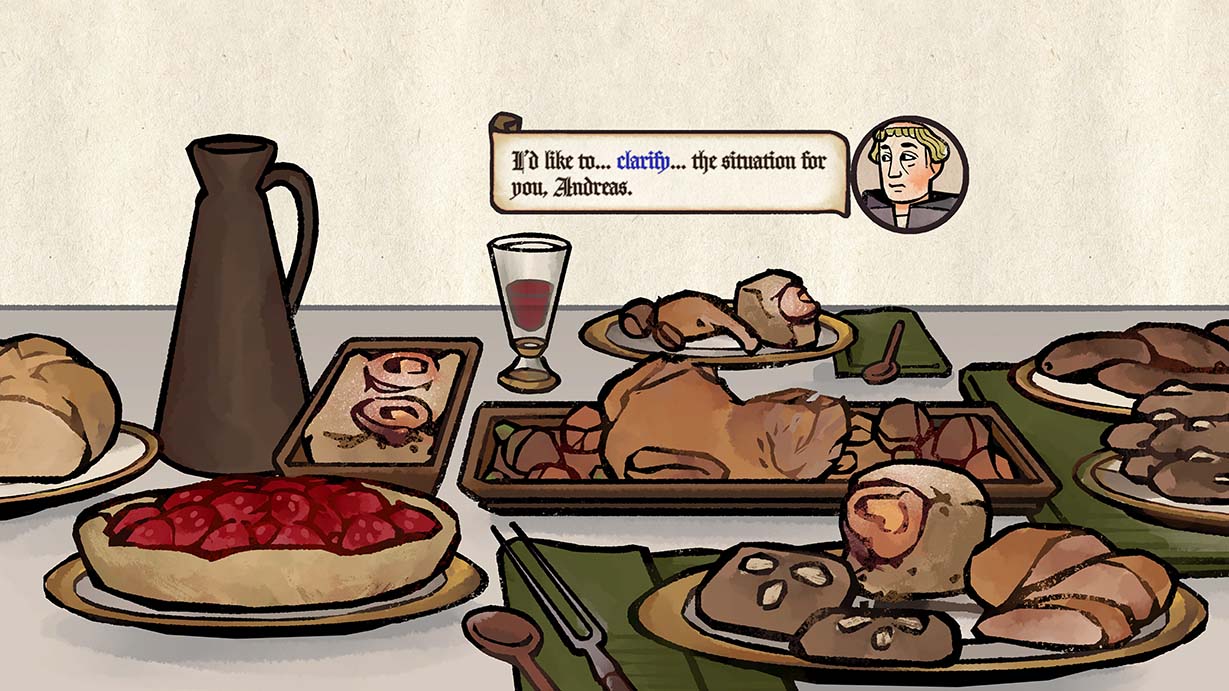
Only once you do have this confrontation do you learn the truth: Guy is embezzling from the abbey and redistributing the money among conversos, European Jewish families who converted to Christianity to avoid exile and violent antisemitism – families like Guy’s own. This single conversation, possibly one of my favorite video game moments this year, completely recontextualized the way I had been thinking of Guy’s character. Of course he has a terrible attitude about being a monk and working at the abbey. Of course he would steal from the church without remorse. Of course I couldn’t convict him of murder for any of this. Pentiment builds to this character moment in both a way that makes perfect sense, and a way that hit me like a brick.
Pentiment is a game about the ways in which human beings paper over history. It’s a game about having to confront the parts of history we choose to ignore or forget, from the Pagan rituals deeply rooted into Tassing’s community celebrations to Andreas’s dead infant son. It makes sense, then, that Guy is a descendant of conversos, Jewish people who were forced to ignore their own histories to survive. But – much like Andreas will do later on – Guy draws on the painful ambiguity of his past to motivate his actions towards others in the present.
The key difference, and the reason I suspect some people don’t vibe with Brother Guy even after learning his motivations, is the question of community. Andreas uses his revelations about Tassing’s history and his own to help the people of Tassing, the townsfolk you meet and grow to have complex relationships over the course of the game. Guy, on the other hand, uses his revelations to help a community of people who are kept off-screen and talked about in the abstract. It’s easy to guess which would be more relatable to players who don’t have additional, personal context to add to Guy’s backstory, people who didn’t grow up learning about religious persecution that very likely affected their immediate family tree.
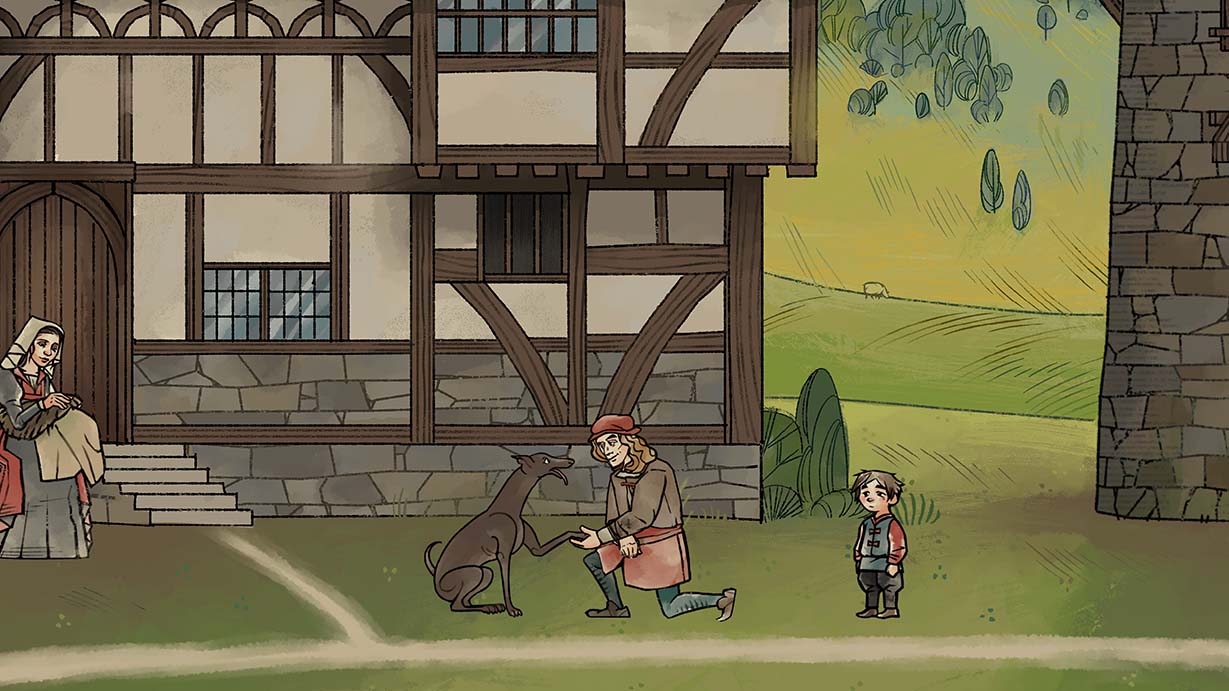
I even agree that Guy is pretty unlikeable! He blatantly doesn’t care about the peasants of Tassing, is rude to Brother Piero, and talks down to Andreas. I will admit that I chose a lot of the dialogue options that allow you to argue with him, or call him a shithead. Still, I can’t help but hold him close to my heart as an important, complex example of Jewish representation in a medium that doesn’t have many Jewish characters to its name. It was especially important to me this year, amidst the release of Hogwarts Legacy – a game that encourages you to hunt down antisemitic stereotypes who literally kidnap children – and amidst the online and offline antisemitism one encounters just existing in 2022. I admit: I want to see more Jewish characters like Benjamin and Rachel, who exist Jewishly in the world without being a lesson or a source of conflict. But I also want to see more Jewish characters like Guy, with layers of motivation, anger, and multigenerational trauma. Characters who may not always be likable, but whose stories will touch Jewish players like me in memorable, relatable ways.
Most of my friends who played Pentiment never experienced Guy’s confession, and a lot of them did convict Guy for murder. Some were confused when I said that there was no way I could have killed Guy, even moreso when I insisted they replay the game and do the full Guy investigation, to experience what I had. I’m sure that other people out there reached Guy’s confession and didn’t react as strongly to it. Maybe they heard what he had to say, and still convicted him. But as a Jewish person who grew up listening to stories about family members fleeing Europe, and being taught in school about Jews being forced to convert to stay alive, I just couldn’t do it. Brother Guy’s story is a piece of representation I would never have imagined seeing in a video game. And of all the stories packed into Pentiment, it’s his that I keep coming back to.
If you like what we do here at Uppercut, consider supporting us on Patreon. Supporters at the $5+ tiers get access to written content early.

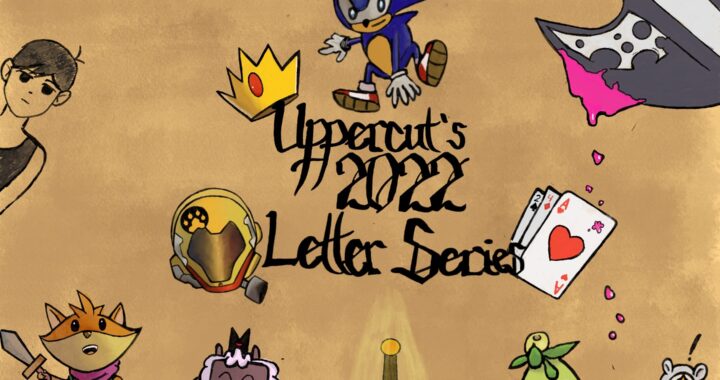
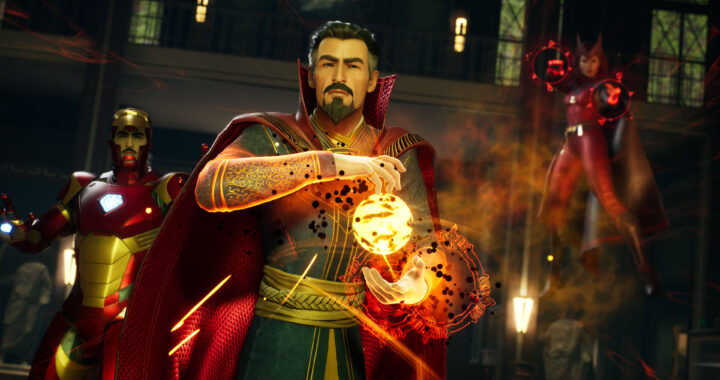
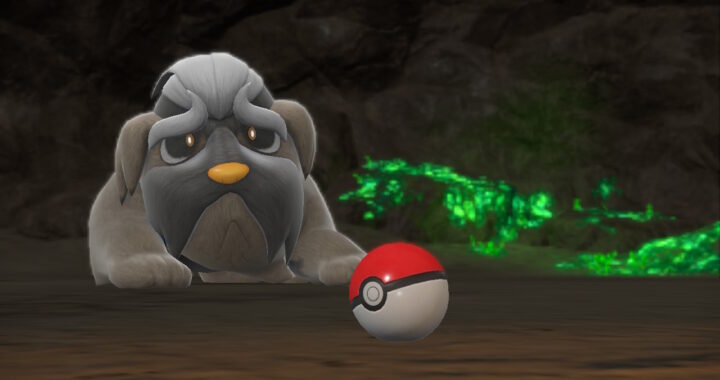


I don’t have anything significant to add to this article I just want to spread appreciation for Brother Guy. The biggest hater in all of the Holy Roman Empire and he deserves it. Love him so much